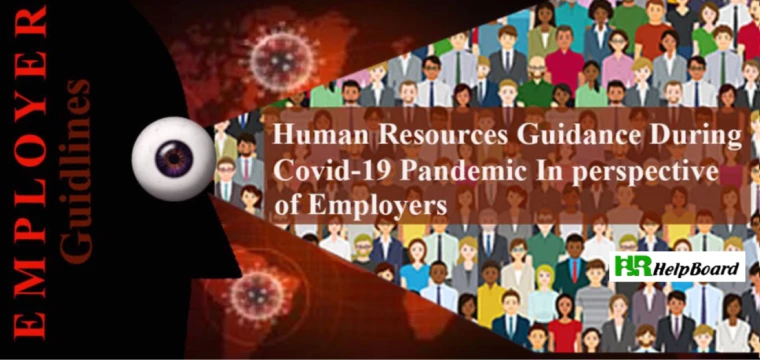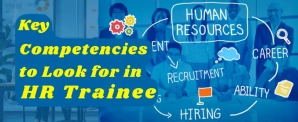
Human Resource Guidance during Covid-19 Pandemic in the Perspective of Employers
COVID-19 pandemic has certainly transformed the way of life for most which influences countries, societies, companies, and individuals to reconsider the way they live and work. Today, the crisis is not a new situation for any organization, however, the Covid-19 pandemic created unexpected challenges of unequaled proportion even for adaptive and crisis-preparedness organizations. Throughout the world, organizations that are more specifically affected hard by the hit of pandemics are experiencing threats to their survival and vivacity.
Human Resource Management (HRM) is mostly placed at the fundamental of this chaos due to the impact of COVID-19 towards employees and the need of the organization to ensure priority of employees’ health and safety as well as the need to adapt employees in a new setting. The health and safety of employees will contribute to better productivity, higher quality of work, improved workforce morale, and decreased employee turnover rates, and overall leads to quality of life (Ahmad, Saltar, and Nawaz, 2016).
As HR deal with dilemmas on how to keep employees safe and informed, there are some takeaways that can guide the employers to navigate this pandemic situation;
Some takeaways to the employers to navigate this pandemic situation:
- Practice up to date with accurate information
It is tough for an employer to develop proper decisions due to huge numbers of inaccurate information based on fake news, rumors, individual assumptions, and perceptions. Therefore, it is essential for an employer to stay up to date with current news and facts which helps to make a better decision. So, employers should monitor official information platforms such as government advisories and the World Health Organization (“WHO”) website and make sure the information retrieved is correct with the right facts. Besides, employers also need to be updated their employees with accurate information regarding benefits, pay, types of incentives, work situation and etc.
- Speak up with your employees
Employers should speak up openly and frequently with their employees so that they have the proper needed information which helps to keep themselves updated and aware of the covid-19 issues. It should not assume that all the employees will be educated with the proper channel of reliable information. Putting everyone on the same page will reduce uncertainty messages or information provided from reliable sources. Furthermore, employees need to know about their work conditions, salary and wages, benefits, and how the organization will protect and support their well-being. Open and timely information will help to build trust and decrease the spread of fake information that may lead to anxiety in the workplace.
- Provide Flexibility to Employees
Employers should understand that this pandemic added stressful situations for all parties including employees. Therefore, it is essential role of HR to identify those employees who have different needs based on their conditions such as those working parents with school-age children who may need more time off as classes are shifted to online platforms. This time of ambiguous circumstances will pass but employees will remember how they have been treated by their employers after the hazard of the virus disappeared. A dissatisfied employee may try to spread negativity to the world on the way of employer treated them badly. This may affect the organization's image and reduce the chances to attract and retain talent.
- Provide employees with emotional support to work remotely and raise concerns
Employers should provide a safe platform in order to support employees' concerns about their aspects related to work from emotional strain and mental health to the danger of having contracted Covid-19. This is not only to develop a good employee relation but also helps to diagnose early detection and find ways to curb the spread of the virus and also overcome mental health issues due to emotional strain. Further, when remote work and family life collide, employees face difficulties to handle the stress that comes from both roles. According to Cecilia Tse, Wellbeing Strategy Leader, PwC stated, “We are committed to helping build our people’s wellbeing and we define this to include their physical, emotional, mental, and spiritual well-being. This statement demonstrates the importance of employees’ well-being since they are dealing with anxiety due to the pressure of work-life balance and the Covid-19 pandemic.
- Successful employees are trusted by their employers
For decades, employees succeed in a situation where they are supported by employers by being given the authority in how they perform work and provided regular constructive feedback. As the transition from the traditional way of working in the office to work from home has put much pressure on employees which leads to insecure conditions due to trust-related issues. It is important for employers to instill confidence towards their employees and care about their work and understand that they will perform to the best of their ability even there is no one monitoring their shoulder. So, employers should prevent micromanaging their employees and start to trust and support them through effective collaborations.
The bottom line is that the Covid-19 pandemic is shifting the nature of work as we know it and this transition will likely continue even after the virus disappeared from this world. Therefore, Human Resource professionals and employers need to prepare their employees to embrace the work-related opportunities provided by the organization in order to curb the Covid-19 pandemic situation.
Latest JobsView All
-
 Regional Manager – Acquisition – No... New Delhi 24 Oct 2025
Regional Manager – Acquisition – No... New Delhi 24 Oct 2025Ascent Human Solutions Pvt. Ltd..
-
 Production Incharge ... Greater Noida 04 Oct 2025
Production Incharge ... Greater Noida 04 Oct 2025Ascent Human Solutions Pvt. Ltd..
-
 Key Account Manager – Higher Educatio... New Delhi 24 Oct 2025
Key Account Manager – Higher Educatio... New Delhi 24 Oct 2025Ascent Human Solutions Pvt. Ltd..
-
 Head – Schools English (South Asia)... New Delhi 24 Oct 2025
Head – Schools English (South Asia)... New Delhi 24 Oct 2025Ascent Human Solutions Pvt. Ltd..
-
 Technical Services and Formulation Mana... Pune 29 Sep 2025
Technical Services and Formulation Mana... Pune 29 Sep 2025Ascent Human Solutions Pvt. Ltd..
RELATED ARTICLES
-
Human Resource Key Competencies to Look for in HR Trainees Explore
-
-
Performance management Employee Happiness and Workplace Happiness 2025 Explore
-
Performance management Boosting Employee Engagement and Knowledge Retention through... Explore
-
Human Resource Why Employee Voice Matters? Explore
-
-
-
Human Resource HR Planning - How to Manage Your Leave Policy Structure Explore
-
Human Resource Mastering Leadership: The Three C's of Success Explore
-
-
-
















